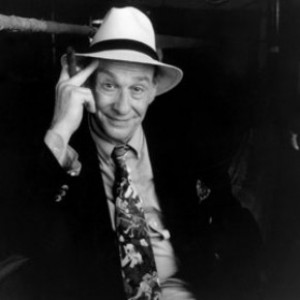Bert Sugar (Bert Randolph Sugar)

Bert Sugar
Bert Sugar, boxing’s human encyclopedia, a prolific writer and editor and a flamboyant and ubiquitous presence in the world of the ring, died on Sunday in Mount Kisco, N.Y. He was 75.
He had lung cancer and died of cardiac arrest at Northern Westchester Hospital, his daughter, Jennifer Frawley, said.
The author or editor of dozens of books; the editor, at various times, of The Ring magazine and Boxing Illustrated; and a television and radio commentator who rarely turned away from a microphone, Mr. Sugar was as voluminous a speaker as he was a writer.
Garrulous, opinionated, an eager conversationalist who was known to talk with just about anybody, he was an accomplished raconteur with a bottomless sack of anecdotes and an incorrigible penchant for wisecracks and bad jokes. You could pick him out in a crowded room by his voice — a distinctively upbeat growl — or by the omnipresent wide-brimmed fedora on his head and the fat cigar in his mouth.
Mr. Sugar, who was elected to the International Boxing Hall of Fame in 2005, was not simply a character, however. He wrote about the sport with swagger and panache, a prose style that carried the weight of expertise and that simply assumed the authority to bellow and bleat:
“In the world of the early 1900s, still awash with Victorian gentility and doily-type embroidery on everything from manners and modes to conversation and conventional heroes,” he wrote to introduce an essay on the great black champion Jack Johnson, “the name of the heavyweight champion stood out in stark relief, a man of swaggering virility who epitomized the turbulent yet proud surety of the populace of a nation destined for greatness.”
In the 1980s, he dared to choose and rank the 100 greatest boxers of all time, and 20 years later he revised the list (and the book explaining it). In “Boxing’s Greatest Fighters” (2006), he ranked Sugar Ray Robinson No. 1, Joe Louis at 4 (after Henry Armstrong and Willie Pep) and Muhammad Ali at 7 (after Harry Greb and Benny Leonard). At 100, he listed Mike Tyson, whose chapter he began this way:
“To perplexing questions like ‘Why does Hawaii have interstate highways?’ and ‘Why did kamikaze pilots wear helmets?’ can be added another: What the hell happened to boxing’s kamikaze pilot, Mike Tyson?”
Herbert Randolph Sugar was born in Washington on June 7, 1936, and, according to family lore, legally changed his name to Bert as a child because he was tired of classmates taunting him with, “Herbert, please pass the sherbet.”
He attended public schools, graduated from the University of Maryland and earned business and law degrees at the University of Michigan, where he wrote for The Michigan Daily and played rugby. He passed the Washington bar in 1961 — “the only bar I ever passed,” he was wont to remark — but instead of going into the law, he moved to New York City and worked for a time in advertising.
An obsessive sports fan and an inveterate memorabilia collector who had a 700-pound chunk of stone from the original Yankee Stadium planted in his rock garden, he leapt into sports journalism by the beginning of the 1970s, purchasing Boxing Illustrated — which he edited well but ran as a business badly — and a handful of lesser-known, short-lived sports publications. For a while in the mid-’70s, he edited the men’s magazine Argosy.
In 1979, he and several others, including Dave DeBusschere, the former basketball star, and Bill Veeck, the former maverick baseball club owner, purchased The Ring; Mr. Sugar was its editor through troubled financial times until 1983. Mr. Sugar’s book about Muhammad Ali, “Sting Like a Bee,” written with the boxer Jose Torres, was published in 1971, and Mr. Sugar was the co-writer, with Angelo Dundee, Ali’s longtime cornerman, of Dundee’s autobiography, “My View From the Corner: A Life in Boxing.” (Dundee died on Feb. 1.)
With the former heavyweight champion Floyd Patterson, he wrote “Inside Boxing” (1974), an examination of boxing technique. And he wrote on other subjects as well: a history of ABC Sports, a biography of the escape artist Harry Houdini, a primer on horse racing. Nearly as immersed in baseball arcana as in boxing arcana, he edited several volumes of statistics and trivia.
Mr. Sugar lived in Chappaqua, N.Y. In addition to his daughter, he is survived by his wife, the former Suzanne Davis, whom he married in 1960; a son, JB; a brother, Steven; and four grandchildren.
Born
- June, 07, 1937
- Washington, D.C.
Died
- March, 25, 2012
- Mount Kisco, New York
Cause of Death
- spent years battling lung cancer, but died from cardiac arrest
Cemetery
Other
- Unknown

